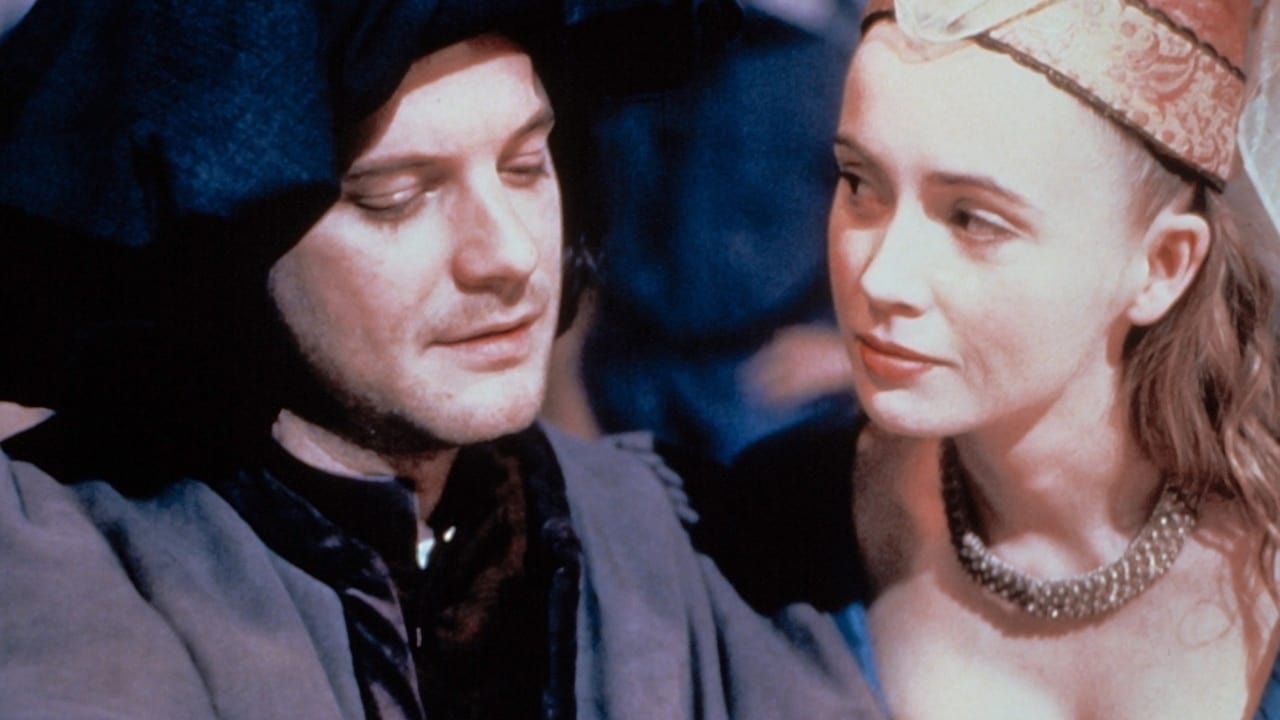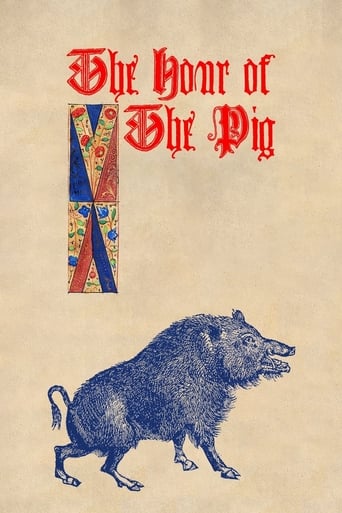

Beautiful exploration of premodern atmosphere, of time's masks and of faith. Show in rule's body and ambiguity of innocence. Signs, symbols and respiration of a era. Misticism, sin and a strange advocate lost in a deceptive world.A great character in Ian Holm acting and subtle recreation of gestures of every period. At first sight, the love is only motive of characters actions. Love for law, for power or money, prestige or personal image, for ideal or for a woman. But, the essence is the sin, like result of corruption, hypocrisy and prejudices. Richard Curtois is not only an outsider, the stranger but principal danger for community. The desertion of Paris is capital error . The endeavor to move life in his rational limits- a cruel blasphemy. Image of his failure is not the departure, but the presence of father Albertus in a place who destroys every innocence's shadow.In spite of atmosphere, it is not a historical film. The reality after September 11 is Medieval in same measure and same saving knight is expecting.
... View MoreThe quirkiness that another reviewer objects to is part of this movie's charm. The opening scene, a hanging, where one of the co-participants (a donkey) in an unnatural act is freed upon petition of the townspeople, is simply wonderful and sets the tone for what follows.Not pointed out by any reviewers yet is that the director seems to have reproduced scenes out of European paintings (Flemish, I believe) - the deer in the inn, the man from the inquisition seated in the tavern, the innkeeper's wife and staff gathered to meet the lawyer when he arrives at the in, and more. The lighting, colors, and scene arrangement are faithfully reproduced. This is just one example of the charms of this movie, which is virtually unknown to the public.And one of the most delicious parts is the witch's blessing. Whenever I lend or give away a copy of this, I pointedly give it with my own blessing.
... View MoreHour of the Pig, or the Advocate, as it is better known outside England in its edited incarnation to avoid an NC-17 rating, is a period piece built around the curiosity of the medieval animal trial. Yes, this strange phenomenon actually occurred; both the Church, and to a lesser extent, the legal authorities in various parts of medieval Europe spend part of their time assessing the guilt of animals in regard to property damage and human injury. Behind their investigations in this heavily Christian world was the idea that the devil might be controlling those who were not Christian or otherwise behaving badly. As you might well imagine, Jews, Moors, animals, and other nonconformists often got the raw end of the deal. The film indulges slightly in the conceit that the sophisticates in society--like the advocate (Colin Firth) and an educated priest (Ian Holm)--were intellectually above these superstitions but were either too powerless or too hypocritical to protest it.Be that as it may, the advocate (based loosely on an actual lawyer, and his cases) comes to a small town in the French countryside to begin a new practice away from the indecencies of Paris. He figures that his knowledge of law will work to both his advantage and that of his new neighbors, whom he is primed to admire for their bucolic virtues. He couldn't be more wrong. The tone is set with his first glimpse of the town, like a scene from Brueghel--the hanging of a man and a donkey convicted of engaging in sodomy. At the last minute, a messenger from the authorities arrives bearing a character reference sufficient to reprieve the donkey; no such luck, however, for her partner in crime.From that point forward, the film gently presents the advocate as mistaken about nearly every conviction that he deigns to express. The serving girl at the inn, whom he admires on first glance for how she "carries herself," so unlike the women in Paris, turns out to be a prostitute. Nor is he aware that this inn, in which he takes up residence, is a whorehouse until his clerk, who is the script's witty voice of common sense, informs him just before he returns to Paris. His first case, the defense of a man accused of killing his wife's lover, in which a pig figures as a material witness, is an ostensible success, though the defendant all but admits his guilt to the stunned advocate after the trial. His second case, upon which he enters with doomed confidence, is an unmitigated disaster because of his ignorance of local precedent, resulting in the death of a woman for witchcraft. As the woman is taken from the courtroom, she offers the advocate some enigmatic advice about a case involving a young Jewish boy recently killed, apparently by a pig belonging to gypsies. "Look to the boy," she tells him. At her execution, she offers the town not the curse that everyone was expecting but a blessing, intended to cure the town of its sins. As it happens, the blessing comes true, but, as this film would have it, the cure may well be worse than the disease.Enter now the plot's hinge. The authorities incarcerate the gypsies' pig, expecting to execute it. Firth wants desperately to avoid the matter, despite his attraction to the seductive owner of the animal, but fate conspires against him. The case eventually gets him mixed up with the local seigneur (Nicol Williamson), a pragmatic businessman who bought his title and wants to buy the advocate as well. We're not quite sure why until much later when the advocate learns how the boy died, but the advocate still has to win the pig's freedom because the facts of the case remain hidden.The film doesn't qualify as a traditional murder mystery, despite the scaffolding of its plot; it's a little too arbitrary for that. But its irony and its flirtation with mystification, if not traditional narrative mystery, maintain interest. Furthermore, its sense of humor doesn't get in the way of the dark, the gruesome, and the baffling, which are the film's true hallmark. The characters are well drawn and well acted. This story is an adventure of a sort that doesn't often make it into film these days. Too bad. The rewards are many.
... View MoreI caught this movie after reading an interview in the Washington Post with the writer/director---I *love* movies where the strangest parts are all actually true. I'm very surprised it's not more popular (though it's interesting the video box never even mentions that it's set in Medieval France!). A hidden gem.
... View More